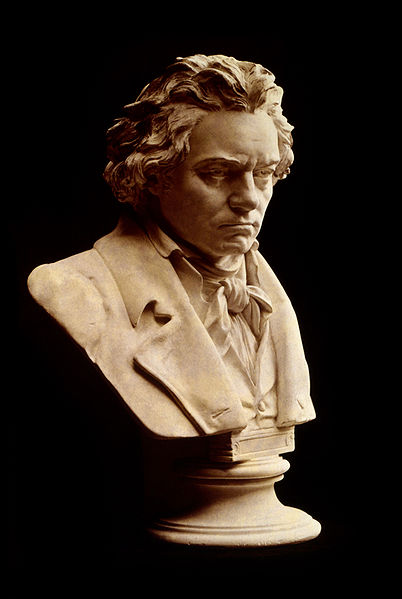Bernard Haitink bids farewell to the CSO with a mature and sophisticated Beethoven Nine
Haydn’s Symphony No. 45 may be the officially titled Farewell Symphony, but the nickname also fits Beethoven’s Ninth. In recent years, it has become the go-to piece for orchestras aiming to wrap up a season or bid adieu to a conductor or choral director in spectacular fashion.
The CSO did it in 2006 when Daniel Barenboim closed his 14-year tenure as music director. And the orchestra is doing it again with three performances through Sunday of Beethoven’s choral masterwork led by principal conductor Bernard Haitink.
The Dutch conductor, who turned 81 in March, has forged an unusually strong bond with the CSO since assuming his post in 2006. Sharing the CSO’s podium with conductor emeritus Pierre Boulez, he helped keep the orchestra in peak form after Barenboim’s departure. Riccardo Muti arrives as music director in September, and Haitink is leaving his principal conductor post. As a kind of thank-you gift, the CSO is closing its 2009-10 season with a survey of all nine Beethoven symphonies under Haitink’s baton.
Friday’s performance of the Ninth Symphony summed up the valuable attributes Haitink has brought to every work throughout this month’s Beethoven Festival. He is not interested in flashy or overly romantic music making. The CSO has certainly heard more dramatic, hair-raising performances of the Ninth, especially from former music director Georg Solti. But throughout his tenure, Haitink has brought uncommon thoughtfulness and authority to the CSO podium. The result was a Ninth full of confidence and sophisticated high spirits.
This was a fast-paced performance yet the tempos never felt rushed. Haitink didn’t allow woodwinds or strings to linger unduly over the gentle contours of the slow movement’s main theme. But his emphasis on elegantly shaped phrases underscored the symphony’s nobility and sense of heroic purpose. As the orchestra hovered and murmured in the opening bars, the sense of quiet expectation, of waiting for something to happen, was palpable. But the atmosphere was never nervous or tense. This was a remarkably mature Beethoven Ninth, suffused with eager anticipation and ringing declamation rather than mercurial torrents of emotion.
The concert’s fine soloists in the final, ‘Ode to Joy’ movement were soprano Jessica Rivera, mezzo-soprano Kelley O’Connor, tenor Clifton Forbis and bass-baritone Eric Owens. Seated on a raised platform at the back of the stage between chorus and orchestra, they were fully integrated into the musical texture, and their voices carried easily into Symphony Center. Owens’ grainy, commanding bass-baritone was stirring in his opening solo and Forbis was equally strong in his solos. The two women added bright, ringing tone to the triumphant ‘Ode’.
Directed by Duain Wolfe, the Chicago Symphony Chorus rose to the symphony’s considerable challenges with their usual aplomb. They were the main attraction in the evening’s opening work, Beethoven’s Calm Sea and Prosperous Voyage. Amazingly, this was the CSO’s first performance of the composer’s setting of two poems by Goethe. Their contrast of profound stillness and tumultuous clamor was a fitting prelude to the symphony.
Happily, the CSO is not biding a final farewell to Haitink. Though he is stepping down as principal conductor, he will return in future seasons as guest conductor – a joyful prospect indeed.
The program will be repeated 8 p.m. Saturday. www.cso.org; 312-294-3000.
Posted in Performances


